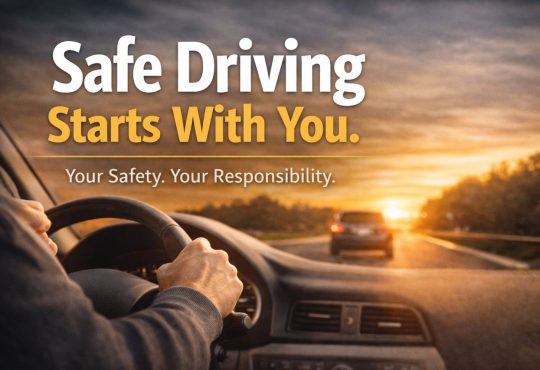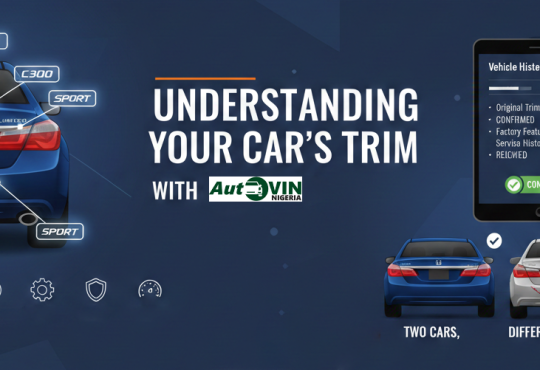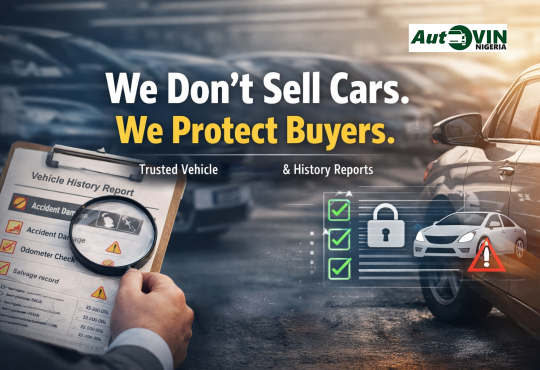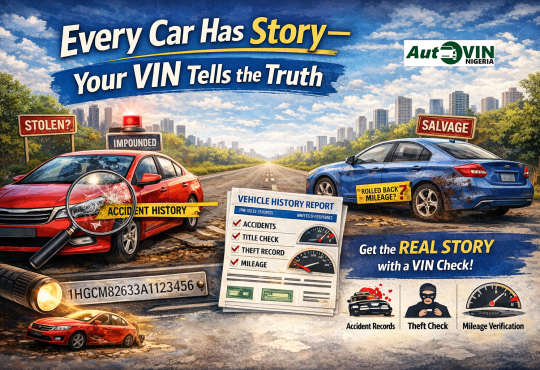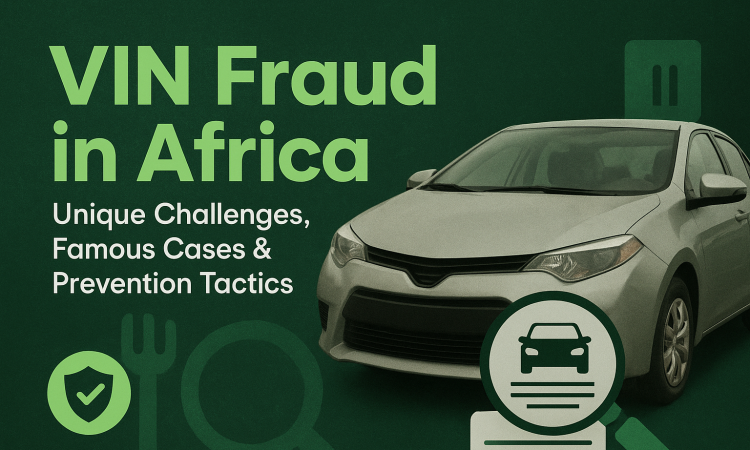
Imagine buying a beautiful Tokunbo car, the body is smooth, the engine sounds great, and the seller says it’s “accident-free.” You feel proud driving it home. But a few months later, during inspection it was discovered that the car was resold with a fake VIN number.
Sounds unbelievable, right? Sadly, this happens more often than most people think. Across Africa, VIN fraud is fast becoming one of the biggest car-buying traps.
🚗 What Is VIN Fraud?
Every car has a Vehicle Identification Number (VIN) — a unique 17-character code that tells you everything about the car: where it was made, what model it is, and its full history.
Fraudsters have found ways to change or copy VIN numbers to hide a car’s real past. Some common tricks include:
- Copying the VIN from a good car and using it on a stolen one.
- Changing a VIN to hide accident or flood records.
- Using fake documents to sell a damaged car as “clean.”
When that happens, you might buy a car that looks fine on the outside but has serious problems or worse.
⚠️ Real-Life Cases Across Africa
This isn’t just talk, it’s happening for real.
In Nigeria, several Tokunbo cars were found with VINs that matched cars still registered in the U.S. and Canada, many of them listed as stolen or written off before being shipped here.
In some countries in Africa, police have caught dealers selling luxury cars like Toyota models using fake VINs to hide their real identity.
And the victims? Everyday people who just wanted a good car deal.
💡 Why VIN Fraud Keeps Happening
It’s simple: not everyone checks the VIN before buying a car. Plus, in many African countries, car records and import systems are still not fully connected, making it easier for scammers to get away with it.
Fraudsters take advantage of this and of our love for cheap Tokunbos.
✅ How to Protect Yourself
Don’t let a shiny car fool you. Protect yourself with these simple steps:
- Always check the VIN on trusted sites like AutoVIN.com.ng before buying.
- Make sure all VIN numbers match on the dashboard, door, and papers.
- Avoid suspiciously cheap cars. A deal that looks too good is usually bad news.
- Ask for import and customs documents and verify them.
- Buy from trusted dealers who are open about the car’s history.
A quick VIN check can save you from years of stress and money loss.
💬 Conclusions
VIN fraud is not just a car issue, it’s a buyer awareness issue. The more we know, the safer our roads and markets become.


